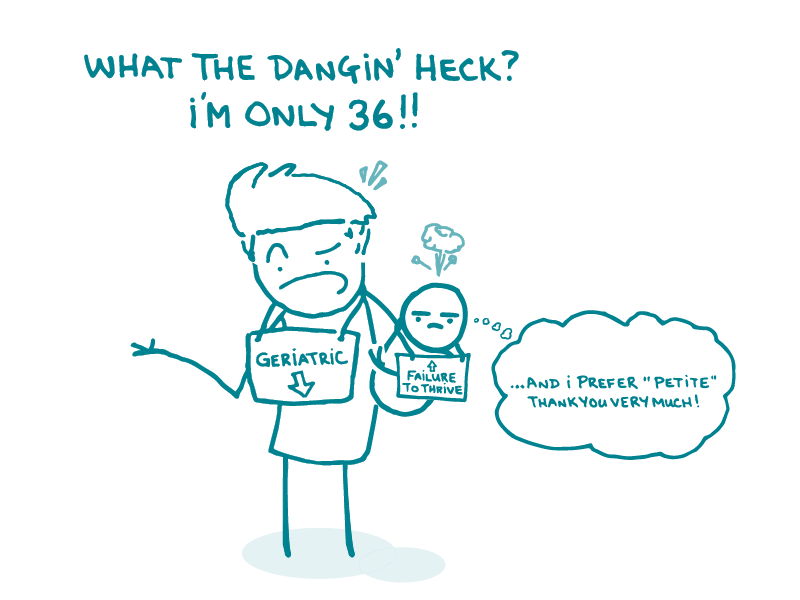
Picture this: you’re 36 years old, you’re pregnant, and you’ve already got plenty of things to worry about. Will your future child get into a good college? Require expensive orthodontia? Fall in with a bad crowd and bring shame upon the family?
Then your doctor gestures at your midsection and refers — in a casual, chummy sort of way — to your “geriatric” pregnancy. Say what? The word “geriatric” tends to conjure nursing homes, not nursing mothers. But doctors commonly use it to describe pregnancies in women over age 35.
Even if you steer clear of “geriatric,” the other options aren’t much better. “Advanced maternal age” and even “older moms” send the same misleading and derogatory message: you’re too old to be pregnant. So, dear readers, what’s a better way to talk about age and pregnancy? Use neutral language and stick to the facts.
Instead of this:
- Advanced maternal age is tied to increased risk of gestational diabetes.
- Extra screenings are recommended for geriatric pregnancies.
Try this:
- If you’re over age 35, you’re at higher risk for gestational diabetes.
- If you’re over age 35, ask your doctor about extra screenings you may need.
Problem solved? Not so fast! The judgment fest doesn’t stop after the birth. If your baby is on the low end of the growth charts, doctors may call it “failure to thrive.” That’s right, babies can fail at growing up, just like their moms can fail at… staying young.
Terms like “failure to thrive” may be convenient catchalls for insurance-coding purposes, but they’re no help at all to anxious new parents. Instead, address the specific problem head on: “If your baby isn’t growing quickly enough, take these steps to help them gain more weight.” See? That’s one parental panic attack averted.
The bottom line: Give pregnant women and tiny babies a break — skip the judgy medical terms and use plain, neutral language.
Browse recent posts